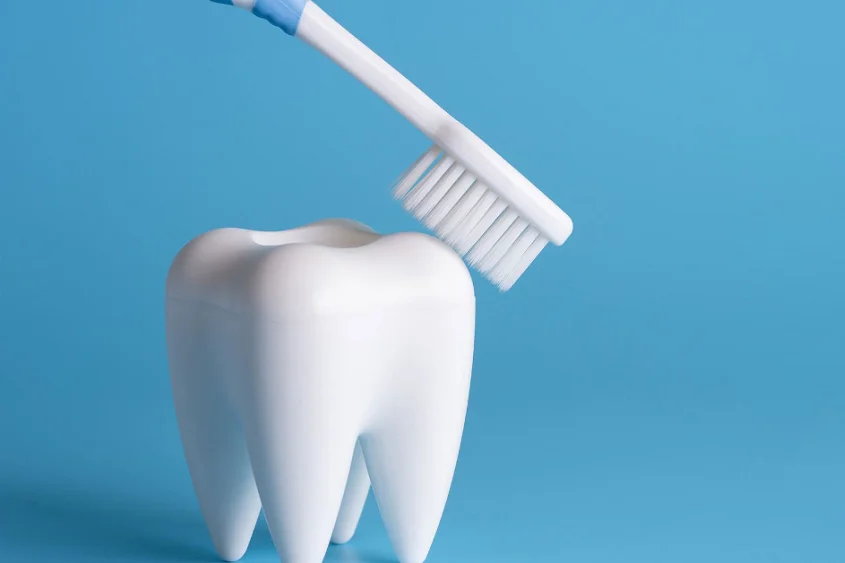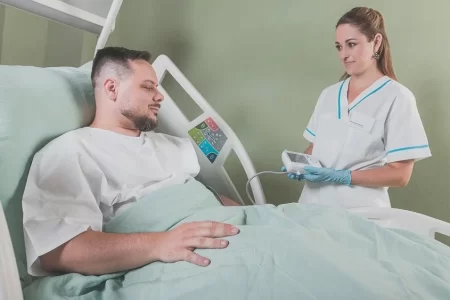DiseaseFix’s every article is examined by board-certified medical professionals to ensure that details on conditions, symptoms, treatments, and protocols comply with current guidelines and recent research. Our content is also written, verified, and approved by a team of experienced writers, editors, clinicians, and other experts.
Urgent Signs That You Should Visit The Dentist
- Updated on: Mar 27, 2024
- 3 min Read

Do your teeth sometimes hurt? Have you noticed your gums looking a bit red or swollen? Maybe you chipped a tooth playing your favorite sport. It can be hard to know when a trip to the dentist is really important. After all, they can be a little scary sometimes.
But the truth is, your dentist is a superhero for your mouth, and sometimes, they need to take a closer look to make sure everything’s strong and healthy.

So, how do you know when it’s time to schedule a visit? Well, here are some important signs to watch out for. If you notice any of these, it’s definitely a good idea to talk to your parents about seeing the dentist:
Swollen, Inflamed, or Bleeding Gums
When your gums are healthy, they’re firm and pink. But if you notice swelling, redness, or bleeding during brushing or flossing, these are warning signs you shouldn’t ignore. These symptoms can be the body’s way of telling you that there’s an issue with your oral health. That’s not all! These issues are specifically pointing toward the early stages of gum disease, known as gingivitis.
If you still ignore these signs, the condition can progress to periodontitis, a more severe form of gum disease. Periodontitis can lead to the gums pulling away from the teeth, forming pockets that become infected, and eventually resulting in tooth loss.
Therefore, it’s important to Visit a Dental Clinic if these symptoms appear. Your dentist will provide tailored treatments, adjusting them depending on the stage of the disease. Thus keeping your mouth healthy and your smile bright.
Jaw Pain
Jaw pain can really ruin your day. It’s not just about discomfort; it can be a sign of several health issues that you shouldn’t ignore. One common reason for jaw pain is TMJ disorders. This fancy term stands for temporomandibular joint disorders, which affect the hinge connecting your jaw to the rest of your skull. Another reason could be teeth grinding. Over time, this can really start to hurt our jaws.
Now, ignoring persistent jaw pain is a bad idea that can lead to worse problems down the road. So, when should you seek dental advice for jaw pain? Well, if the pain doesn’t go away in a day or two, or if it’s bad enough to make eating or talking tough, it’s time to call the dentist.
Also, if you notice other symptoms, like swelling, redness, or a fever, don’t wait. These could be signs of a more serious issue that needs quick attention.
Chronic Tooth Pain
Chronic tooth pain can range from a dull ache to sharp, constant pain. Often, this pain comes from problems like cavities. Cavities are little holes in your teeth that can hurt a lot if they get deep enough.
It’s super important not just to try to tough it out with tooth pain. If you let it go on for too long, small problems can get much worse, and you might end up needing a big fix instead of a small one.
Until you can get to the dentist, there are a few things you can do to help with the pain. Rinsing your mouth with warm salt water can soothe sore areas. The real solution is seeing your dentist as soon as possible. Don’t wait until it becomes unbearable.
Worn or Chipped Teeth
Teeth can get worn down or chipped for several reasons. Two common culprits are grinding your teeth, a habit known as bruxism, and munching on really hard foods. Grinding your teeth, especially at night, puts a lot of pressure on them, which can lead to chips or even wear them down over time. Eating hard things, like ice or hard candy, can also cause chips or cracks.
Having worn or chipped teeth isn’t just about looks; it can lead to bigger oral health problems. For instance, damaged teeth might become more sensitive to hot and cold foods. They can also be more prone to cavities since chips and cracks are perfect spots for bacteria to hide.
Luckily, there are treatments available, such as fillings, crowns, or veneers, to fix or cover up these issues. To prevent further damage, especially from grinding, wearing a mouthguard at night can really help. It’s like a protective helmet for your teeth, keeping them safe while you sleep.
Conclusion
Ignoring dental health can lead to significant health issues down the line. While it’s easy to procrastinate when making that dentist appointment, recognizing and acting upon these urgent signs can prevent complications and preserve your smile. Regular dental check-ups are also crucial for catching potential problems early and maintaining overall oral health.












